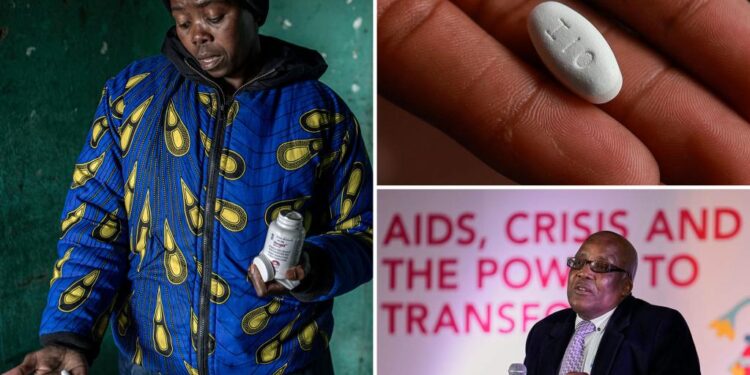Geneva, July 10, 2025 – The United Nations has issued a stark warning: millions of lives are at risk due to recent cuts in HIV/AIDS funding. The sudden halt of U.S. financial support for global HIV programs could lead to over 4 million AIDS-related deaths and 6 million new HIV infections by 2029 if alternative funding is not found, according to UNAIDS, the UN’s AIDS agency.
For decades, programs like the U.S. President’s Emergency Plan for AIDS Relief (PEPFAR) have saved millions of lives. In 2024 alone, PEPFAR provided HIV testing for 84.1 million people and treatment for 20.6 million, particularly in low-income countries. It also funded nearly all HIV prevention medicines in nations like Nigeria. However, the U.S. decision to suspend foreign aid in early 2025 has caused a “systemic shock,” disrupting testing, treatment, and prevention efforts, especially in East and Southern Africa.
UNAIDS reports that in 2024, global AIDS-related deaths were at their lowest in over 30 years, with about 630,000 deaths, down from a peak of 2 million in 2004. New HIV infections also dropped by 40% since 2010. But these gains are now at risk. Clinics have closed, research has stalled, and access to life-saving drugs like lenacapavir, a new HIV prevention injection, is limited.
Some countries are stepping up. Twenty-five low- and middle-income nations have increased their HIV budgets by about 8%, adding $180 million. Yet, experts say this is not enough to fill the gap left by the $4 billion U.S. pledge for 2025, which vanished overnight. “There’s nothing we can do to fully protect these countries from this sudden withdrawal,” said Tom Ellman of Doctors Without Borders.
The impact is already visible. In South Africa, home to 7.7 million people living with HIV, testing dropped by 8.5% in early 2025. Vulnerable groups, like gay men and sex workers, face barriers to care as community clinics shut down. The loss of U.S.-funded data systems also threatens to weaken HIV surveillance, making it harder to track the virus.
UNAIDS chief Winnie Byanyima called the situation a “ticking time bomb.” She urged global leaders to act swiftly, emphasizing that partnerships, like one between Gilead Sciences and the Global Fund to supply lenacapavir, show hope but cannot replace large-scale funding.
Without urgent action, the progress made in the global fight against HIV/AIDS could unravel, putting millions of lives and decades of effort in jeopardy.




































